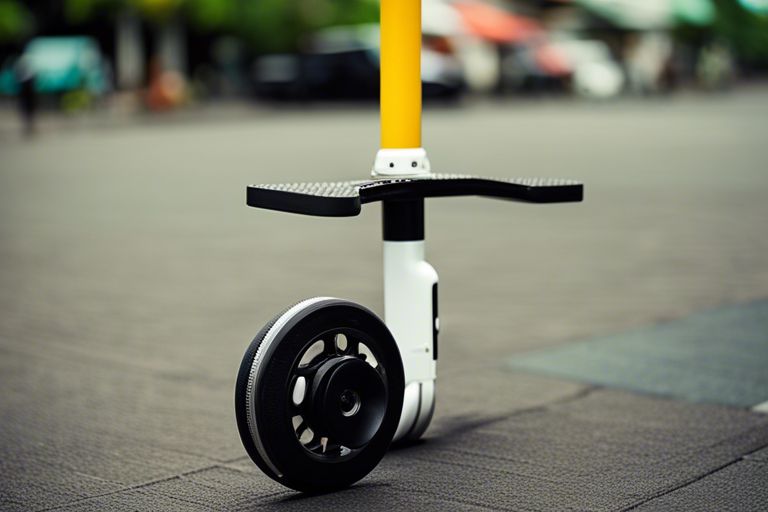Why is pogo illegal in the Philippines?

With the rise of POGO (Philippine Offshore Gaming Operators) in the Philippines, you might be wondering why the government has cracked down on this lucrative industry. Stay tuned as we explore the reasons behind the ban and the implications it has on the country’s economy and society. Key Takeaways: Public Safety Concerns: Pogo operations have been associated with various illicit activities such as human trafficking, money laundering, and cybercrimes, posing risks to the well-being and security of the Filipino populace. Lack of Regulation: The rapid growth of Pogo industry in the Philippines has outpaced the government’s ability to effectively regulate and supervise these operations, leading to numerous legal and social issues. Negative Impact on Society: The proliferation of Pogo businesses has been linked to a rise in criminal activities, increased competition for commercial space, and issues like rising property prices, thereby adversely affecting the local economy and community. The History of Pogo in the Philippines The rise of pogo as a popular form of entertainment Before venturing into why pogo is now illegal in the Philippines, let’s take a look back at its beginnings. Pogo, short for Philippine Offshore Gaming Operators, first gained popularity in the early 2000s as a form of online entertainment that allowed users to play a variety of casino games from the comfort of their own homes. The convenience and accessibility of pogo quickly made it a favorite pastime for many Filipinos looking to try their luck and have some fun. Early warnings and concerns about pogo’s safety One of the earliest signs that pogo might not be all fun and games was the growing concern about its safety and security. As the industry rapidly expanded, so did reports of illegal activities, such as money laundering and tax evasion, associated with some pogo operators. These issues raised red flags among government officials and citizens alike, leading to calls for stricter regulations and oversight to ensure that pogo was being conducted in a legal and ethical manner. However, despite efforts to address these concerns, the reputation of pogo continued to be tarnished by ongoing controversies and scandals, ultimately leading to the decision to ban the industry altogether in the Philippines. The Safety Concerns Injuries and accidents related to pogo use Any activity that involves jumping on a stick can pose risks, especially when safety precautions are not in place. In the case of pogo sticks, injuries can range from minor cuts and bruises to more serious sprains, fractures, or head injuries if a fall occurs. Without proper protective gear and supervision, you are putting yourself at risk of experiencing these mishaps. The lack of regulation and safety standards Safety should always be a top priority, but when it comes to pogo sticks in the Philippines, the lack of regulation and safety standards makes it even more concerning. Without clear guidelines on the recommended age for pogo stick users, quality control of the products, or guidelines on where and how to safely use them, it’s easy for accidents to happen. To ensure the safety of pogo stick users, it is crucial for authorities to step in and establish regulations and safety standards that pertain to the manufacturing, selling, and usage of these devices. This will help create a safer environment for those who want to enjoy pogo sticks without unnecessary risks. Expert opinions on the dangers of pogo Accidents can happen in the blink of an eye, and experts in the field of sports and recreation warn about the potential dangers of using pogo sticks. From orthopedic concerns to the risk of falling and sustaining serious injuries, these professionals emphasize the importance of taking safety precautions and being aware of the risks involved when using pogo sticks. Pogo sticks may seem like harmless fun, but it’s vital to understand the potential risks and take necessary precautions to avoid accidents and injuries. By being informed and following safety guidelines, you can still enjoy the thrill of bouncing around on a pogo stick while minimizing the chances of getting hurt. The Legal Background The laws and regulations surrounding pogo in the Philippines Keep in mind that the Philippines has strict laws and regulations when it comes to Philippine Offshore Gaming Operators (POGO). The government has put in place rules to monitor and regulate these operations to ensure transparency and prevent illegal activities. How pogo was deemed illegal and why Surrounding the legality of POGO in the Philippines, it was deemed illegal due to concerns about tax evasion, money laundering, and the influx of illegal foreign workers. The government took action to crack down on these issues, leading to the ban on POGO operations. It was found that many POGO companies were not paying the correct taxes and were involved in illicit activities, which prompted the government to take a firm stance against their operations. The role of government agencies in enforcing the ban Government agencies such as the Philippine Amusement and Gaming Corporation (PAGCOR) and the Bureau of Internal Revenue (BIR) play a crucial role in enforcing the ban on POGO operations. They work together to ensure that all POGO companies are compliant with the law and face consequences if found violating regulations. Understanding the significance of these government agencies in enforcing the ban is crucial to grasp the gravity of the situation surrounding POGO in the Philippines. The Impact of the Ban The effects on pogo enthusiasts and businesses Once again, the ban on POGO in the Philippines has left enthusiasts and businesses in a state of confusion and distress. If you were someone who enjoyed the thrill of online gambling through POGO platforms, you are now left with limited options to satisfy your gaming cravings. The closure of these operations has not only affected the players but also the businesses that were thriving due to the POGO industry. The rise of underground pogo scenes To add to the tumult, the ban has led to the rise of underground POGO scenes in the Philippines. Any avid player knows
Why is pogo illegal in the Philippines?

With the rise of POGO (Philippine Offshore Gaming Operators) in the Philippines, you might be wondering why the government has cracked down on this lucrative industry. Stay tuned as we explore the reasons behind the ban and the implications it has on the country’s economy and society. Key Takeaways: Public Safety Concerns: Pogo operations have been associated with various illicit activities such as human trafficking, money laundering, and cybercrimes, posing risks to the well-being and security of the Filipino populace. Lack of Regulation: The rapid growth of Pogo industry in the Philippines has outpaced the government’s ability to effectively regulate and supervise these operations, leading to numerous legal and social issues. Negative Impact on Society: The proliferation of Pogo businesses has been linked to a rise in criminal activities, increased competition for commercial space, and issues like rising property prices, thereby adversely affecting the local economy and community. The History of Pogo in the Philippines The rise of pogo as a popular form of entertainment Before venturing into why pogo is now illegal in the Philippines, let’s take a look back at its beginnings. Pogo, short for Philippine Offshore Gaming Operators, first gained popularity in the early 2000s as a form of online entertainment that allowed users to play a variety of casino games from the comfort of their own homes. The convenience and accessibility of pogo quickly made it a favorite pastime for many Filipinos looking to try their luck and have some fun. Early warnings and concerns about pogo’s safety One of the earliest signs that pogo might not be all fun and games was the growing concern about its safety and security. As the industry rapidly expanded, so did reports of illegal activities, such as money laundering and tax evasion, associated with some pogo operators. These issues raised red flags among government officials and citizens alike, leading to calls for stricter regulations and oversight to ensure that pogo was being conducted in a legal and ethical manner. However, despite efforts to address these concerns, the reputation of pogo continued to be tarnished by ongoing controversies and scandals, ultimately leading to the decision to ban the industry altogether in the Philippines. The Safety Concerns Injuries and accidents related to pogo use Any activity that involves jumping on a stick can pose risks, especially when safety precautions are not in place. In the case of pogo sticks, injuries can range from minor cuts and bruises to more serious sprains, fractures, or head injuries if a fall occurs. Without proper protective gear and supervision, you are putting yourself at risk of experiencing these mishaps. The lack of regulation and safety standards Safety should always be a top priority, but when it comes to pogo sticks in the Philippines, the lack of regulation and safety standards makes it even more concerning. Without clear guidelines on the recommended age for pogo stick users, quality control of the products, or guidelines on where and how to safely use them, it’s easy for accidents to happen. To ensure the safety of pogo stick users, it is crucial for authorities to step in and establish regulations and safety standards that pertain to the manufacturing, selling, and usage of these devices. This will help create a safer environment for those who want to enjoy pogo sticks without unnecessary risks. Expert opinions on the dangers of pogo Accidents can happen in the blink of an eye, and experts in the field of sports and recreation warn about the potential dangers of using pogo sticks. From orthopedic concerns to the risk of falling and sustaining serious injuries, these professionals emphasize the importance of taking safety precautions and being aware of the risks involved when using pogo sticks. Pogo sticks may seem like harmless fun, but it’s vital to understand the potential risks and take necessary precautions to avoid accidents and injuries. By being informed and following safety guidelines, you can still enjoy the thrill of bouncing around on a pogo stick while minimizing the chances of getting hurt. The Legal Background The laws and regulations surrounding pogo in the Philippines Keep in mind that the Philippines has strict laws and regulations when it comes to Philippine Offshore Gaming Operators (POGO). The government has put in place rules to monitor and regulate these operations to ensure transparency and prevent illegal activities. How pogo was deemed illegal and why Surrounding the legality of POGO in the Philippines, it was deemed illegal due to concerns about tax evasion, money laundering, and the influx of illegal foreign workers. The government took action to crack down on these issues, leading to the ban on POGO operations. It was found that many POGO companies were not paying the correct taxes and were involved in illicit activities, which prompted the government to take a firm stance against their operations. The role of government agencies in enforcing the ban Government agencies such as the Philippine Amusement and Gaming Corporation (PAGCOR) and the Bureau of Internal Revenue (BIR) play a crucial role in enforcing the ban on POGO operations. They work together to ensure that all POGO companies are compliant with the law and face consequences if found violating regulations. Understanding the significance of these government agencies in enforcing the ban is crucial to grasp the gravity of the situation surrounding POGO in the Philippines. The Impact of the Ban The effects on pogo enthusiasts and businesses Once again, the ban on POGO in the Philippines has left enthusiasts and businesses in a state of confusion and distress. If you were someone who enjoyed the thrill of online gambling through POGO platforms, you are now left with limited options to satisfy your gaming cravings. The closure of these operations has not only affected the players but also the businesses that were thriving due to the POGO industry. The rise of underground pogo scenes To add to the tumult, the ban has led to the rise of underground POGO scenes in the Philippines. Any avid player knows






